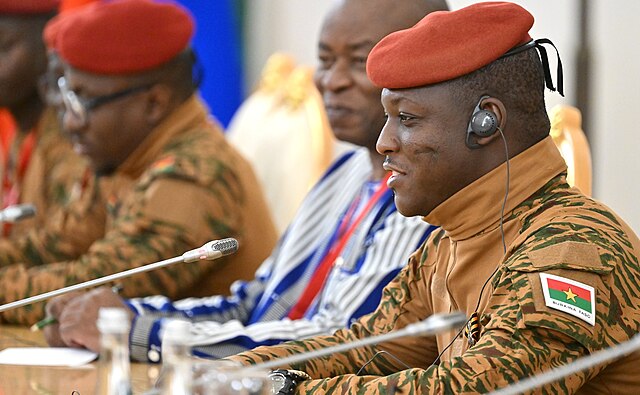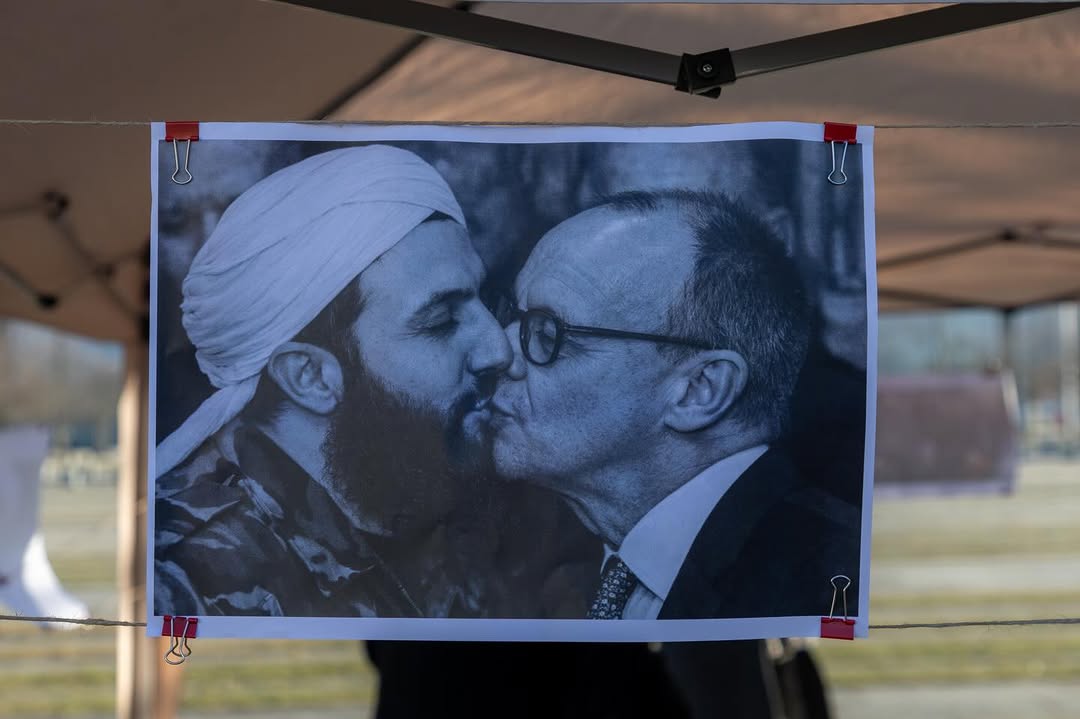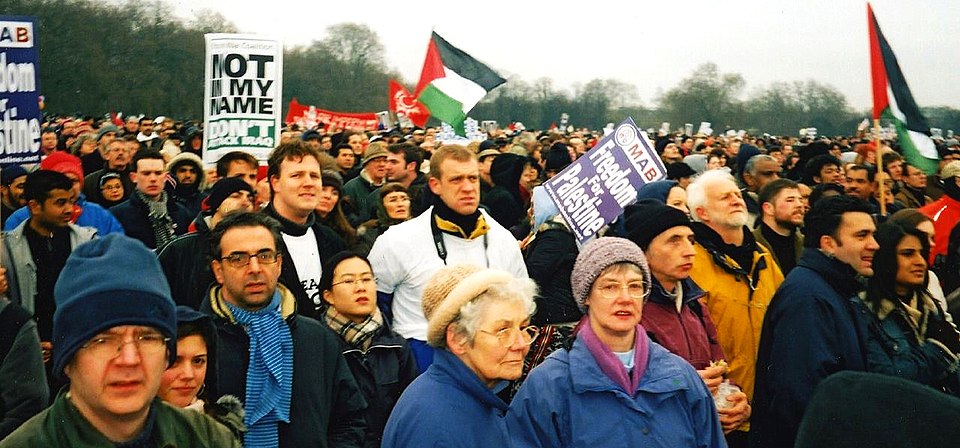“Their goal is to keep us in a state of permanent war so that we cannot develop and they can continue to plunder our resources.”
—Ibrahim Traoré, May 10th 2025
Following in the footsteps of Thomas Sankara, the revolutionary Marxist president of Burkina Faso, Ibrahim Traoré seized power in a coup in 2022.
Almost three years later, he is widely celebrated in Africa as the new pan-Africanist, Marxist leader, with the determination to dismantle imperialist chains to France by forging a new alliance between Burkina Faso, Mali and Niger.
The Global North, however, accuses him of being yet another authoritarian populist ruler full of empty promises.
“Rather than a beacon of hope, Burkinabè tyrant Ibrahim Traoré is a pointer to everything that is wrong with the continent.” Ebenezer Obadare, Council on Foreign Relations, New York.
“To the disillusioned youth across the continent, he offers a seductive promise: progress without the inconveniences of democracy. But behind the revolutionary slogans and Sankara-inspired aesthetics lies a far less romantic reality.” Umar Farouk Bala, Premium Times.
Meanwhile Traoré, the charismatic 37-year-old visionary, has laid the foundations of a promising leader in his short life. Described as being ‘very talented’ and ‘quiet’ in his early years, he studied Geology at the University of Ouagadougou where he graduated with honours adeund joined the Association of Muslim Students and the Marxist National Association of Students of Burkina Faso (ANEB).
He went on to join the Army of Burkina Faso, was promoted to lieutenant in 2014 and joined the UN peacekeeping forces MINUSMA during the Mali war. He returned to Burkina Faso where he assisted in countering several Islamist terrorist insurgencies. After he was promoted to Captain in 2020, however, he expressed disillusionment with the country’s leadership and corruption.
With his impressive background, it stands to reason that he is celebrated by many as a true revolutionary hero and a pan-Africanist forerunner for the rest of the continent to break the colonial chains once and for all.
“Indeed, due to his unwavering commitment and patriotism, Captain Ibrahim Traoré has become a star, an inspiration, and a champion of anti-imperialism, posing a genuine threat to imperialism in Africa. He is forging a new path not just for post-colonial African nations, but for the world.” Pan Africanism Today Secretariat.
Beverly Ochieng, a senior researcher at global consultancy firm Control Risks, told the BBC: “His messages reflect the age we are living in, when many Africans are questioning the relationship with the West, and why there is still so much poverty in such a resource-rich continent.”
Western attempts to curb Traoré’s determination to free his country from the clutches of imperialism and neo-colonialism appear almost laughable as the number of assassination attempts mount and his popularity surges.
The estimated number of attempts on his life lies between 18 and 20, indicating his policies are considered a threat to the imperial order that is already heavily shaken by the rise of China.
In contrast, France, the U.S., IMF and the World Bank have not been interested in overthrowing authoritarian leaders in other African countries, such as Paul Biya in Cameroon, Teodoro Mbasogo in Equatorial Guinea or Alassane Ouattara in Cote D‘Ivoire as long as they cooperate and maintain the exploitation structures for cheap minerals and raw materials.
After becoming demoralized about the country’s governance and being a spokesperson for soldiers voicing their concerns about the leadership and lack of resources to properly fight terrorists, he joined Colonel Paul-Henri Sandaogo Damiba’s coup to seize power of the country in January 2022.
However, the new government failed to contain ISIS-Sahel and other extremist groups which controlled 40% of Burkina Faso’s territory at the time or combat poverty in the country. By September 2022, Traoré and his group had carried out another coup overthrowing Damiba and accusing him of collaborating with France.
Human Rights Watch reports Traoré’s junta began cracking down on dissent inside and outside the country via forced disappearances and adding journalists and activists to lists of wanted terrorists. The list includes prominent critics of the junta such as exiled journalists and activists.
Meanwhile, elections had been scheduled for June 2024 but on May 25, 2024, the junta announced that it would remain in power for another five years, following nationwide talks that were largely boycotted by the opposition.
“If we have to say it loud and clear here, we are not in a democracy, we are in a popular, progressive revolution.”
While openly admitting Burkina Faso is not a democracy, Ibrahim Traoré has done more for the people of Burkina Faso in two years than the French backed former president Compaoré did in over 30 years in power.
He told Burkina24 “It is impossible to name a country that has developed in democracy. Democracy is only the end result.”
He goes on to explain: “We must necessarily go through a revolution, and we are indeed in a revolution,” and that they will continue to help people understand what revolution is.
This current transformation is the result of a series of coups in former French colonies in West Africa linked to dissent over poverty, corruption, insurgent violence and neo-colonialist exploitation instruments, such as the currency, CFA Franc, and French military bases.
Assimi Goïta took over Mali in 2021 and in 2023 Abdourahamane Tchiani led the coup in Niger.
Despite public support for the coups, the UN, the African Union, ECOWAS – the imperialist backed union of West African states, USA, France and other EU countries condemned the coups in the three countries. This came in the form of ‘sanctions, withdrawal of aid, suspensions from the AU and ECOWAS, cancellation of trade and loan offer agreements, freezing assets at the Central Bank of West African States, suspensions of security cooperation by France and the US, border closures by surrounding ECOWAS member States and even threats of an ECOWAS invasion led by Nigeria,’ according to the Socialist Workers League.
Burkina Faso, Mali and Niger then came together in 2023 to establish their own anti-imperialist confederation: The Alliance of the Sahel States (AES, Alliance des États du Sahel).
Security is a core issue for the three countries after NATO’s invasion in Libya 2011 destabilized the region and led to the rise of various Al-Qaeda and IS affiliated groups across the Sahel. The alliance will especially work together against these armed extremist groups that have left thousands dead and millions displaced in recent years.
Previously relying on French and US troops that badly failed people and have been accused of various human rights violations, the AES has expelled these troops and is turning towards Russia for support as well as relying on a civilian-led Volunteers for the Defense of the Homeland (VDP’s) in Burkina Faso that collaborates between the government and forces from Niger and Mali to combat Islamist terrorist groups.
Burkina Faso now seems to be responding actively and swiftly to the needs of the public with a wide range of reforms.
The government has launched agricultural reform, including a farm equipment distribution programme that has significantly increased agricultural production and led to a consistent GDP growth of 4-6%.
Traoré’s government has also enhanced the country’s infrastructure and industrialization with the first state-owned dairy factory, pharmaceutical and food production facilities to facilitate a move away from the country’s dependence on exporting raw materials for imperialist profits.
Furthermore, Traoré has rejected the presidential salary taking only the salary of an army captain; a gesture that gained him respect and trust right from the beginning. He has also cut the ministers’ pay by 30% while increasing public sector wages by 50%.
Moreover, Burkina Faso has now nationalized its gold reserves, its number one export, by renegotiating exploitative contracts and withdrawing mining permits from some foreign companies, as well as established a domestic gold refinery to process their own resources.
Meanwhile, Mali has introduced new environmental regulations, bills and taxes on foreign mining companies, established SOREM – a state-owned mining company – in 2022 and nationalized gold mines from South African and Canadian companies.
Despite being the world’s seventh-largest producer of uranium-based energy, Niger has remained one of the lowest consumers of electricity globally, while the French nuclear weapons program and the system of French nuclear power generation is dependent on uranium mined from open pits near the city of Arlit in Niger.
Now Niger has revoked French nuclear giant Orano’s uranium mining licence.
Further to nationalizing natural resources, the AES is planning to introduce its own gold backed currency “the Sahel”. The Franc CFA – the thus far commonly used currency in the former French colonies – is controlled by the French treasury and coupled to the Euro remains subordinate to French capital power, undermining the true self-determination of the AES’ own economies.
“The first instrument of sovereignty is currency. You cannot be sovereign if someone else mints your currency. It’s clear that we’re not going to stay in this CFA franc affair. France itself knows it.” Niger’s Foreign Minister, Bakary Yaou Sangaré stated in April this year at the summit in Russia. Beyond the security cooperation Sangaré indicated that Russia could play a key role in facilitating the transition to a new currency.
Nevertheless, despite the bold projects and visible progress, the revolution against capitalism and imperialism still faces multiple challenges in the highly mineral export-oriented economies.
Mali for instance, suffers from immense electricity supply issues and is also currently under pressure to pay back an over $90 million loan for the Manantali dam and power plant that also supplies Senegal as well as Mauritania.
Indeed, the electricity issue discredits the popular support of the new military leaders who also – unlike Traoré – continue paying themselves the high presidential salaries. All in all, the three countries are in very different stages in terms of the social realities, military transition, management of public affairs, corruption, nepotism and clientelism.
Hence, the significance of the alliance will remain a subject of debate among working-class activists, students, pan-Africanists, socialists and Marxists.
Will the first authoritarian instruments of Traoré and the AES lead to a true self-empowered, socialist region or even spark a revolution throughout the continent? Or do the reforms only undermine the state capitalist power interests or even larger imperialist goals of a new army elite now backed by Putin’s Russia and the Wagner Group?
Regardless, it is the people themselves who have been fighting the neo-colonial exploitation for decades and the AES leaders cannot simply ignore the will and the power of the people that has now sparked anew providing fresh consciousness of empowerment.
“As socialists and working-class activists in Africa, we must realise that the total liberation of Africa can be won and defended only by we, the working masses, ourselves. Our anti-imperialist politics must be rooted in anti-capitalist struggle and our fight to win the battle of democracy.” Emmanuel Edomwonyi, Socialist Workers League, Nigeria.
As the global community wakes up to the AES, protests on the 30th of April in solidarity with Traoré and Burkina Faso in cities across Africa and Europe sent a clear message that people will no longer tolerate assassinations and imperialist invasions but stand with a sovereign Africa.
Socialists of the Global North must resist Eurocentric patronizing solutions and trust the power and the will of the people of the region to empower themselves with their own structures and ideas and continue the struggle against our own governments and the capitalist elites; resist the new European militarization that would also include imperialist invasions and other counter revolutionary attempts and to fight for open borders and safe migration routes.
We must create safer spaces for Africans to speak up for themselves and raise awareness about the exploitation of the people and the resources and further global capitalist structures. We must stay in dialogue and solidarity with the people of the AES and everywhere in the Global South.
Because none of us is free until all of us are free!




